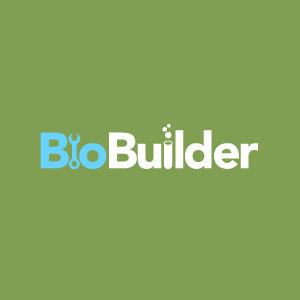
There are two public service efforts that have been facilitated and improved through my work with the PSC. The first is BioBuilder, an educational synthetic biology curriculum I developed and its accompanying foundation I organized to support the delivery and development of the content. My goal has been to create access to ongoing scientific research questions, presenting them in teachable form with hopes of creating widespread interest and engagement in STEM fields. The curricular website delivers novel synthetic biology content through animations, ready-to-implement authentic lab experiments, and a community forum to share discoveries. BioBuilder now has an active community of teachers from 29 states, including nearly 100 who have been trained in the workshops we run. Students around the country (at least 1,500 this past academic year) who learn from BioBuilder’s modular activities show gains in understanding as well as interest in engineering of biology.
The second public service effort that’s been enriched through my work with the PSC is COPUS, a grassroots network of individuals eager to engage the public with science. As one of the Boston-hub leaders for COPUS, I can speak with firsthand knowledge about the incredible outreach community we have in our area. As a faculty member in the Department of Biological Engineering, I also know how challenging it is for academics to find the right venue for communicating their work to the broader community. By connecting COPUS to the PSC we’ve nucleated some terrific pairings of MIT faculty members and the public through the network of programs and individuals associated with COPUS. We’ve also launched a series of outreach lunches to enhance the community sense of those MIT programs that too often work in isolation.
I came late to public service, or at least to the realization that the projects most dear to me were for public benefit. My work with the MIT Public Service Center, and with the incomparable Sally Susnowitz there, has clarified the “why” as well as the “what” of my educational endeavors. When I describe to the folks at the PSC a little about the teaching modules that I offer through the BioBuilder Educational Foundation, they reflect my ideas back to me in ways that make the full implications more clear. For instance, when I focus on the curricular content, they remind me that I’m also providing these materials in an open environment that enables discussion among participants. They’ve helped me see how this communication toolkit is as vital to the mission as the particulars of what’s taught, since inclusive conversation is a must if we hope for widespread engagement. Similarly, when I describe the approach of training teachers to use the materials I’ve developed, the PSC helps me understand how my work is also revitalizing and reforming the profession of teaching.
The PSC has also helped me think about my personal strengths and given me the confidence to do more. By enabling others to do great work, the PSC unleashes change that’s global in its reach and lasting in its impacts. Even more, though, the people who run the PSC model strong leadership and illustrate what a community of dedicated individuals can do. This idea of hard work and persuasive mission strikes me as something to be proud of, as something “very MIT,” and as something the PSC illustrates time and again.
Natalie Kuldell, PhD
Instructor, Department of Biological Engineering
President, BioBuilder Educational Foundation

